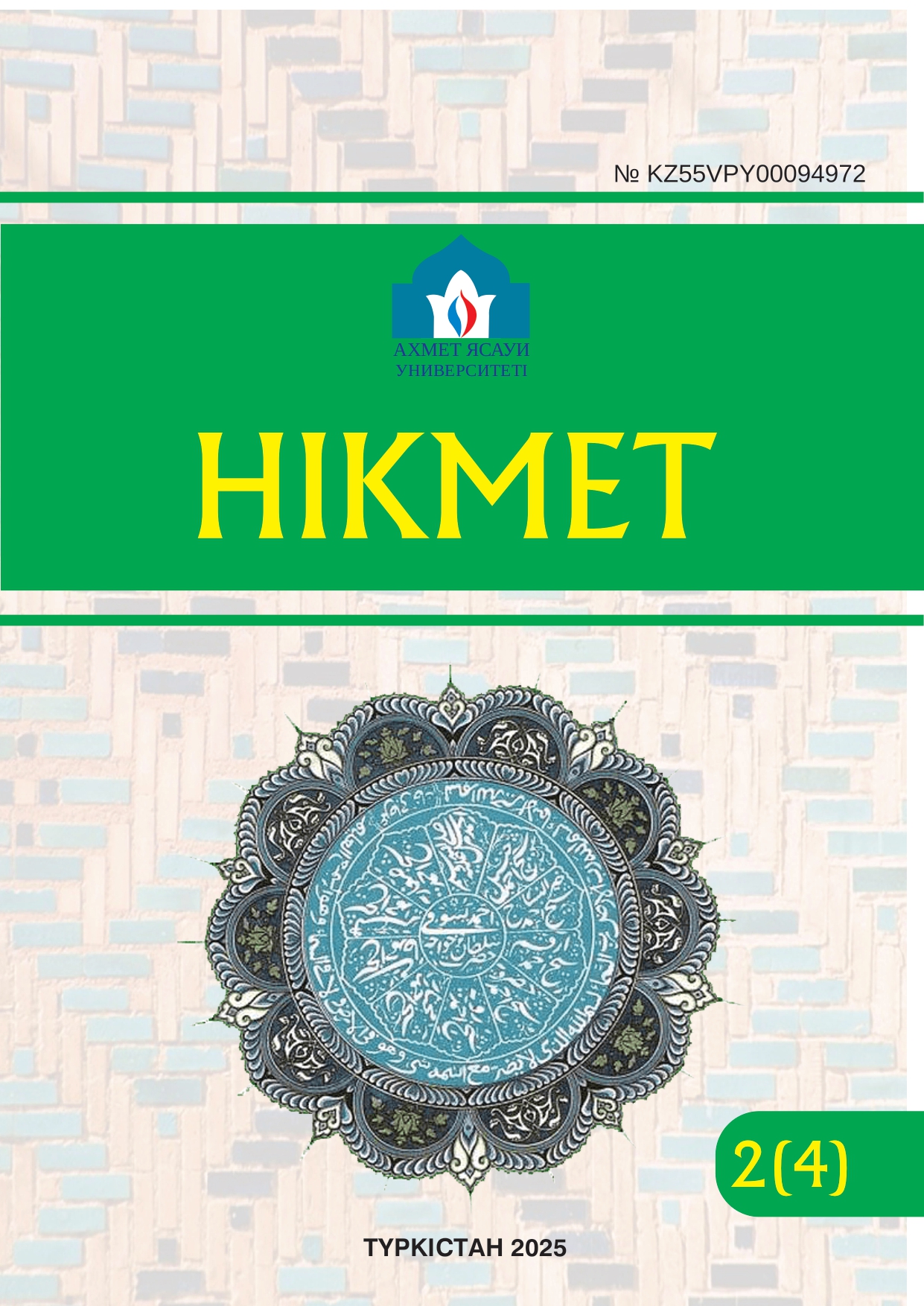Kazakh Enlightenment in the Context of Jadidism and Gumar Karash’s Educational Approach
205 104
Keywords:
Jadidism, Gumar Karash,, religious education, pedagogy, enlightenment movementAbstract
This article provides a comprehensive examination of the Enlightenment movement that emerged in Central Asia and the Kazakh steppe in the late XIXth and early XXth centuries, with a particular focus on the processes of religious education during this period. The Jadidism movement is discussed as a new paradigm that combined academic disciplines with religious principles, reflecting a reformist approach to religious education. It is emphasized that Jadidism was not merely a teaching method or ideology, but a multidimensional phenomenon with significance in the socio-political structure of the period and its progressive aspects. The study systematically analyzes the attitude of Gumar Karash, one of the leading Kazakh intellectuals of the early XXth century, towards the Jadidism movement, his educational activities, and his views on religious education. Karash’s intellectual output, the uniqueness of his religious views, and the development of his epistemological and worldview perspectives are examined; the content of his works is analyzed in depth to reveal the main orientations of his intellectual world and his mode of thinking at the level of civilization. As a result, it has been determined that Gumar Karash demonstrated a courageous stance against the social challenges of his time, guided society on which interpretation of Islam to adopt, and not only advocated for Jadidist ideas but also successfully implemented them in his own experience. Furthermore, it is concluded that his religious approach aligns with what is today described as a “moderate” and “secular” interpretation of Islam, and that he developed an original approach based on the integration of religion and academic education.

